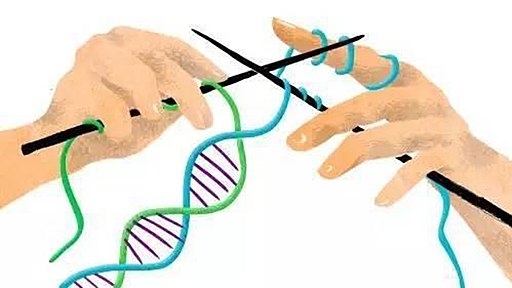GM ‘designer babies’: breakthrough or nightmare?
By Dave King,
Red Pepper
| 12. 06. 2021
Only a global ban on human genetic engineering can prevent a new era of eugenics from emerging.
Hongjie mao, CC BY-SA 4.0, via Wikimedia Commons
In late 2018, when He Jiankui announced that he had created the world’s first genetically modified (GM) babies, part of the worldwide outrage was motivated by the hope that we would not have to deal with this issue for at least ten years. Since then, eugenics has reared its ugly head in the experience of minority ethnic and disabled people during the pandemic, and with the revelations that women were being sterilised without their knowledge in one of Donald Trump’s ICE detention centres in Georgia. In Britain, we had the prime minister’s then chief adviser, Dominic Cummings, trying to appoint outspoken eugenicists to advisory roles in number 10 and to head up his pet Advanced Research and Invention Agency.
Eugenics is here and now; in fact, it never went away. That is why nearly all industrialised countries put in place legal bans on the genetic engineering of human beings in the 1990s or earlier. But despite that, scientific establishment bodies, which cannot countenance the idea of banning any type of...
Related Articles
By Scott Solomon, The MIT Press Reader | 02.12.2026
Chris Mason is a man in a hurry.
“Sometimes walking from the subway to the lab takes too long, so I’ll start running,” he told me over breakfast at a bistro near his home in Brooklyn on a crisp...
By Diaa Hadid and Shweta Desai, NPR | 01.29.2026
MUMBRA, India — The afternoon sun shines on the woman in a commuter-town café, highlighting her almond-shaped eyes and pale skin, a look often sought after by couples who need an egg to have a baby.
"I have good eggs,"...
By George Janes, BioNews | 01.12.2026
A heart attack patient has become the first person to be treated in a clinical trial of an experimental gene therapy, which aims to strengthen blood vessels after coronary bypass surgery.
Coronary artery bypass surgery is performed to treat...
By Staff, ScienceDaily | 01.05.2026
Scientists at UNSW Sydney have developed a new form of CRISPR technology that could make gene therapy safer while also resolving a decades-long debate about how genes are switched off. The research shows that small chemical markers attached to DNA
...




